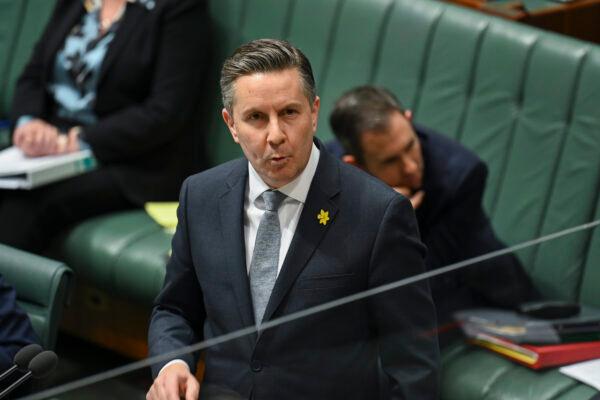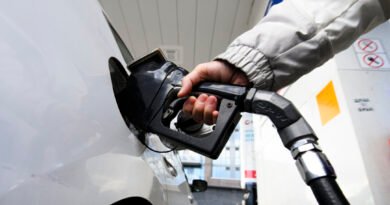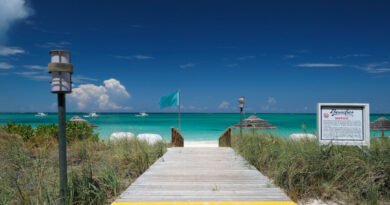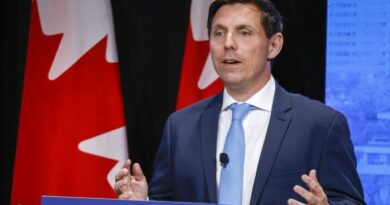Analysis: The Potential Clash Between Elon Musk and Australia’s Internet Regulator
With fines and take-down notices piling up, and the social media giant vowing to test their validity in court, X says free speech trumps all.
Australian authorities have set themselves on a collision course with tech billionaire Elon Musk’s X Corp.
The resultant legal battle—if it reaches Australia’s higher courts—could result in a landmark ruling on what, if any, limits can be placed on free speech under current Australian law, and the regulator’s power to hold non-resident entities to account.
The conflict began when Australia’s eSafety Commissioner Julie Inman Grant issued a $610,500 (US$393,406) fine against the social media platform for not responding to questions on how it was dealing with child sexual abuse material online.
X let the deadline for payment lapse, did not pay the fine, and has now sought a judicial review.
The 2nd Run-In
Ms. Inman Grant then issued an order that X take down a post by Canadian user, Chris Elston, who uses the moniker “Billboard Chris.”
Mr. Elston published disparaging comments about Australian transgender activist Teddy Cook, who was invited to join a panel that advised the World Health Organisation on developing guidelines for the health of gender-diverse people.
X’s Global Government Affairs account confirmed that an order had been received, and the post removed, but said it would “file a legal challenge … to protect its user’s right to free speech.”
By the time X took action, the post had been reshared thousands of times, often as a screenshot, meaning that the deletion of the original would have no effect.
It seems likely that X will also seek a second judicial review over Elston’s post.
The 3rd Run-In
The latest dispute centres on a demand from the eSafety commissioner that X take down images and video of the stabbing spree last week at the Westfield Bondi Junction shopping centre, and the attack on a Christian bishop at the Christ the Good Shepherd Church.
The commissioner gave X 24 hours to comply, or face fines and “possible civil action” regarding material that contained “gratuitous or offensive violence with a high degree of impact or detail.”
Mr. Musk himself responded on X saying, “The Australian censorship commissar is demanding *global* content bans!”
Shortly after, X’s Global Government Affairs account wrote that the company “did not violate X’s rules on violent speech.”
Although the company believed the order “was not within the scope of Australian law,” it had complied domestically and removed all relevant content.
X Complies, But Baulks at Order to Remove Content Globally
X said it was “pending a legal challenge” in the face of another threat from Ms. Inman Grant to levy a daily fine of $785,000 (US$505,854) if it did not remove content from X accounts globally.
“This was a tragic event and we do not allow people to praise it or call for further violence,” X said.
“There is a public conversation happening about the event, on X and across Australia … While X respects the right of a country to enforce its laws within its jurisdiction, the eSafety Commissioner does not have the authority to dictate what content X’s users can see globally.
“We will robustly challenge this unlawful and dangerous approach in court. Global takedown orders go against the very principles of a free and open internet and threaten free speech everywhere.”
Musk Triggers Anger, Insults from Across the Aisle
The response prompted furious action from across the political spectrum.
“I think there’s a bipartisan position in relation to this, we know that the companies, and we’ve seen some of the comments from Elon Musk overnight, they see themselves as above the law, and Australian law should apply equally in the real world as it does online,” Mr Dutton said.
“The Online Safety Act has significant powers in it, we passed it when we were in government, it needs to be enforced and if the laws are inadequate and they need to be strengthened or added to then we would support any effort by the government,” he said.
Centre-left Labor Assistant Treasurer Stephen Jones described X as a “factory for trolls and misinformation,” while federal Health Minister Mark Butler said that the government would fight any legal challenge.
“Australia is not going to be bullied by Elon Musk, or any other tech billionaire, in our commitment to making sure that social media is a safe space,” Mr. Butler said. “So if he wants to fight that fine in court, well, we’re up for that fight.”

New South Wales Labor Premier Chris Minns said it was time for penalties for social media companies to be strengthened.
Emergency Management Minister Murray Watt took aim at Mr. Musk himself, claiming he was a “narcissistic billionaire.”
“It’s exactly what you’d expect from Elon Musk, he doesn’t think he seems to owe any obligation to any member of the public, and quite frankly I think the public has had a gutful of these narcissistic billionaires who think they are above the law,” Senator Watt said.
“They have a responsibility as producers and disseminators of information to do the right thing by the public, they make a lot of money off the public, billions of dollars a year, and I think they owe us all a responsibility. I think it’s entirely fair we go after them.”
Commission ‘Continuing to Engage’
The eSafety Commission said it was continuing to engage platforms “regarding the resharing and reposting of (violent content).”
“We expect platforms that benefit from Australians using their service to make genuine efforts to protect our citizens from harmful content,” the commission said.
‘In relation to X Corp, eSafety is working to ensure the company’s full and complete compliance with Australian law.
“eSafety is disappointed that process has been unnecessarily prolonged, rather than prioritising the safety of Australians and the Australian community.”
The Commission said it expected platforms to abide by their own terms of service, and it was “considering whether further regulatory action is warranted” in relation to X.
Musk Buys Twitter to Safeguard Free Speech
Mr. Musk bought Twitter in 2022 for US$44 billion and later renamed it X.
He said at the time that he was motivated to uphold free speech for the “future of civilisation,” and not by making money—Twitter was not profitable when it was purchased.
“It’s very important for there to be an inclusive arena for free speech … Twitter has become the de facto town square, so it’s important (that there is) the reality and perception that they are able to speak freely within the bounds of the law,” he said in a TED Talk in Vancouver in 2022.
“My strong sense is that having a public platform that is maximally trusted and broadly inclusive is extremely important to the future of civilisation.”
Upon the sale’s completion, Mr. Musk reinstated several high-profile Twitter accounts that had previously been banned, including that of former U.S. President Donald Trump.





